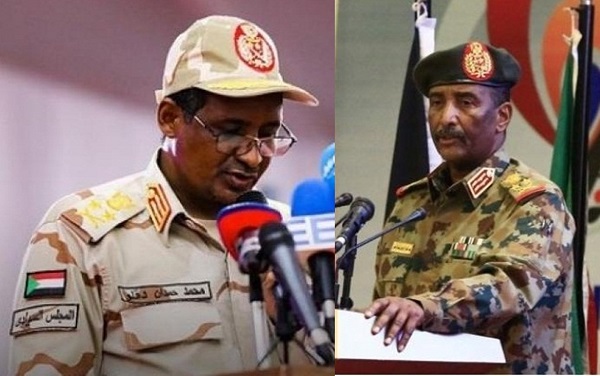
United Nations, (Samajweekly) The imminent implementation of a vital ceasefire in Sudan, holds the potential to “pave the way” for peace talks and bring an end to the month-long conflict, according to the top UN official in Sudan.
“Lives and infrastructure are being destroyed, and the security situation is impeding the delivery of humanitarian aid,” said Volker Perthes, the UN secretary-general’s special representative for Sudan, briefing the Security Council on Monday about recent developments.
Despite repeated declarations of ceasefire by both the Sudanese Armed Forces and the Rapid Support Forces since the eruption of fighting on April 15, the conflict in Sudan has continued unabated for five weeks, with no signs of slowing down, according to Perthes, the head of the UN mission in Sudan (UNITAMS).
If honoured, the pending week-long renewable ceasefire should ease aid deliveries to millions in need and “pave the way for peace talks,” he told the council.
However, Perthes expressed numerous grave concerns regarding serious human rights violations, widespread looting, and the proliferation of weapons across the country, Xinhua news agency reported.
He warned that the escalating ethnicisation of the conflict could lead to a protracted and widespread crisis with ramifications for the entire region. In light of this, Perthes urged both parties to prioritise dialogue and engage in peaceful negotiations, emphasising the importance of acting in the best interests of Sudan and its people.
Civilians have paid a heavy price for this “senseless violence,” he said, noting the more than 700 reported deaths, including 190 children, another 6,000 injured, and many more missing. The violence displaced more than one million people; more than 8,40,000 fled to safer areas while another 2,50,000 have crossed the borders, and nearly 8,000 of the displaced population are pregnant women.
The ongoing fighting across the country has led to “serious human rights abuses and violations” of international humanitarian law, severely undermining the protection and well-being of civilians.
“These violations must be investigated, and the perpetrators brought to justice,” he said.
“The UN family continues to monitor and advocate for an end to all violations.”
In areas such as Khartoum, Darfur, and other locations, the conflicting parties persist in engaging in combat without adhering to the laws and norms of warfare. And the health sector is in a state of collapse, with over two-thirds of hospitals shut down, a significant number of healthcare professionals losing their lives, and dwindling supplies of essential medical resources.
Expressing deep concern over reports of sexual violence targeting women and girls, Perthes said the UN is actively investigating these cases to ascertain the facts. He also raised alarm at the widespread occurrences of looting and enforced disappearances, highlighting the vulnerability of children to recruitment as soldiers, sexual violence, and abduction.
Criminality is compounded by the release of thousands of prisoners and the increasing spread of small arms, he warned.
In El Geneina, located in West Darfur, the clashes between the parties escalated into ethnic violence on April 24. Tribal militias joined the conflict, and civilians took up arms in self-defence, exacerbating the situation, as stated by the UN official.
During the violence, homes, markets, and hospitals were looted and set on fire, and UN premises were also targeted. Reports indicate that more than 450 civilians lost their lives, with another 700 sustaining injuries. The violence continued on May 12, resulting in at least 280 additional deaths and tens of thousands of people being displaced to Chad.
Perthes further expressed concerns about the alarming signs of tribal mobilisation in South Kordofan and the Blue Nile region.
UNITAMS has been actively supporting the UN country team and humanitarian partners in their efforts to restore the flow of aid supplies into and within Sudan, according to the official.
He emphasised the urgent need for additional funding. The revised humanitarian response plan, launched on May 17, seeks $2.6 billion to aid 18 million people, a substantial increase from the initial $15 million requested before the outbreak of the conflict.
As the peace talks progress, Perthes stressed the importance of involving a diverse range of civil and political stakeholders in the process, noting that ultimately, a credible civilian-led transition is essential for achieving lasting peace in Sudan.








